Honey Nazis
(Warning: The following article may contain excessive amounts of snark, and a mild amount of related profanity.)

So apparently I can’t just watch a pleasant little documentary about food without it containing enough authoritarian bunk to bug the hell out of me. I watched the first episode of the series, “Rotten,” on Netflix, and was sufficiently annoyed that I had to write this article about it. To jump right to the point, they tried to make it some shocking crime drama by talking about how—brace yourself for unspeakable atrocities—some honey in the U.S. is … coming from China … without being heavily taxed!!!
God help us! All is lost! It’s the end of days!
You see, somewhere along the way American honey producers were being underbid by Chinese honey producers, which itself was described as some nefarious crime. What kind of despicable criminal tries to make his prices lower than the competition’s prices, in order to get more business?!? Oh, wait. Pretty much every business everywhere does that, always. But because it was them dadburn foreign honey producers taking away the jeeeeerrrrrrbbbbbs of Muricans, we are all supposed to be outraged.
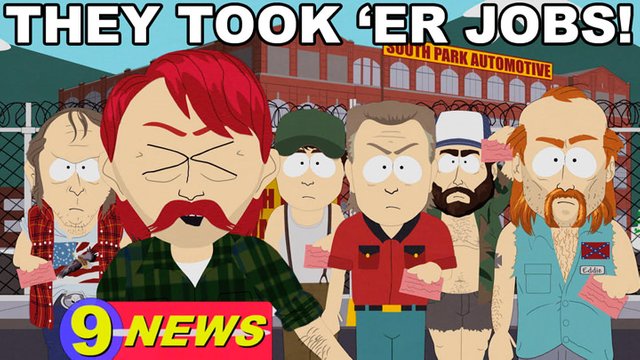
In fact, we’re supposed to be so outraged that we don’t realize that it dramatically benefits Americans to have more buying choices. Competition always favors the customers. But you’re supposed to be waving a flag and jumping up and down too much to think about that. When the U.S. ruling class forcibly interferes with your ability to trade with half of the planet, you’re supposed to be stupid enough to think that that is for your benefit.
So the ever-loving and ever-wise political parasites in Washington, quite a while back, imposed massive “tariffs” on honey imported from China. (That’s a statist euphemism meaning, “If they bring honey here, we rob the crap out of them!”) That is an example of initiating violence. It is morally wrong. Yes, it’s even wrong if you happen to personally benefit from such thuggery. To review…
Voluntary interaction: Good
Violent coercion: Bad
(There might be a test later, but it will be open-book.)
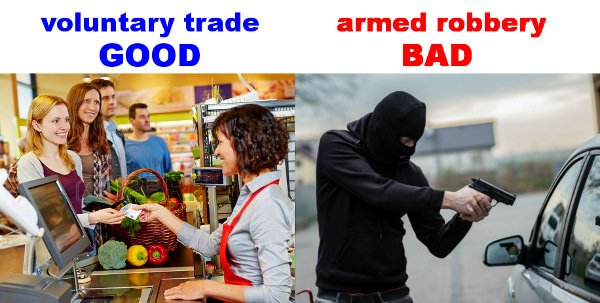
But back to the “Rotten” documentary (pun intended), they then interviewed some meddling douchebag U.S. Attorney, trying his best to demonize voluntary trade while simultaneously trying to glorify violent aggression. So there he is, playing the savior of Murica, while making the asinine assertion that this is not a “victimless crime” we’re talking about, because American honey producers are losing business!
No shit, Sherlock. That’s called competition. To talk as if that is a crime, with victims, is exactly as stupid as saying that if I offer to mow my neighbor’s lawn for $1,000, but someone else gets the job because he offered to do it for only $20, I am somehow the victim of that other lawn-mower’s “crime.”
Anyway, Mr. Law-and-Order Federal Busy-Body Parasite then tries to make it sound all dramatic as the tale is told of how two nasty “honey launderers” (I shit you not) had a diabolical illegal scheme (watch the show if you think I’m exaggerating) to import Chinese honey into the U.S. indirectly, without paying the exorbitant protection racket fees to the federal Mafia, but were foiled at the last minute by the U.S. Honey Gestapo.

The show went on and on about how Chinese honey producers would then find ways to sell and ship to other countries, which in turn would export it to the U.S., where there is a huge demand. And it went into the extensive and expensive ridiculous wastes of time and money that have been put into detecting and rejecting any honey that originated in China.
Because them dadburn Chinese bees are all commies!
Now, for those viewers who aren’t completely brain-dead, the program tossed in a quick reference to some anti-biotic detected in some shipments of honey that (they claimed) could be harmful to people. The exact risks, and amounts, were skipped over, probably because getting into those details would be boring, anti-climactic, and wouldn’t scare people enough. Yes, obviously, if you sell people stuff that contains dangerous ingredients that you didn’t tell them about, that’s bad. But if anyone actually thinks that the U.S. federal “government” gives two craps about whether you are sold unhealthy garbage, you need to learn more about the FDA.
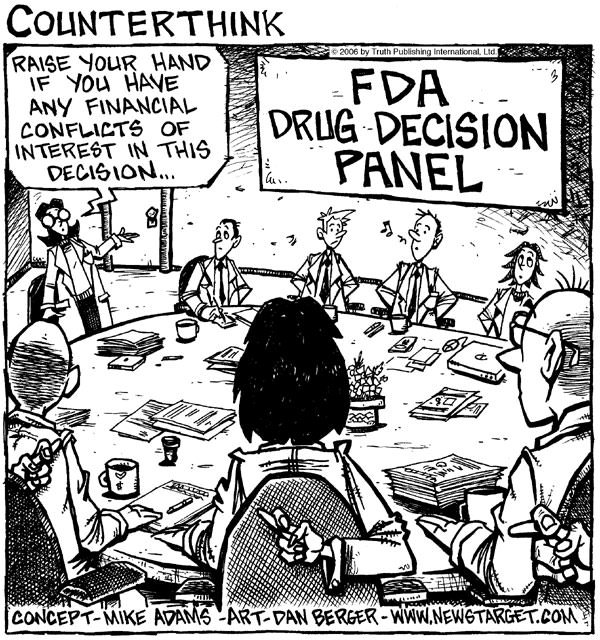
Oh, and they also made brief mention of how some of those nasty Chinese honey producers may be diluting some of the honey with syrup made from rice, in ways that even sophisticated tests can’t always detect. If it’s not harmful (and they didn’t suggest it was), and people can’t tell the difference (even with zillion-dollar science labs), I can’t really figure out why anyone would care so freaking much.
It’s also worth noting that, unlike with their treatment of American bee-keepers, the show did not interview at great length any Chinese bee-keepers, to show their time-honored traditions and personal stories. Because hey, hell with foreigners. They probably aren’t even human. And either way, they’re definitely up to something. Them and their commie bees!

But I digress. (A lot.) I have to emphasize the fact that the mention of the anti-biotics (used to make bees resistant to disease)—the only thing that could in any way be portrayed as potentially immoral—was tiny compared to the vilification of those nasty people trying to bring in Chinese honey without the proper level of extortion from the U.S. ruling class. And, just to be clear—much more clear and honest than the documentary was—it’s not that such honey is banned. The “crime” was not bringing it into the U.S. per se; the “crime” was bringing it into the U.S. without giving the U.S. politicians lots of money in the process.
So what was 100% a shakedown and protection racket, courtesy of the professional crooks in Washington, was portrayed as some noble attempt to protect the American people … “protecting” them from less expensive honey that is perfectly fine to purchase and consume, but which hasn’t been “taxed” enough on its way here.
This is your brain on statism, people. It makes people think, say and do profoundly stupid—and sometimes evil—things.
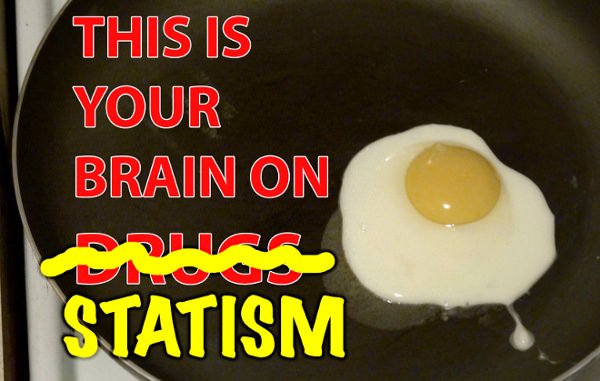
I don’t know if I have the stomach to find out what is in the next episode of the series. Maybe it will be about brave American soldiers fighting for freedom and justice by dropping napalm on some toy manufacturer in Taiwan that has been ruthlessly “victimizing” Muricans by selling them party hats at lower prices, without first paying off the American politicians properly.
Such statist crap is infuriating to watch, especially knowing how many American isolationist doofuses are going to be nodding their heads and cheering, completely unaware that they are applauding authoritarian collectivism, and more restrictions on their own freedom, while the Chinese are demonstrating how voluntary trade and capitalism are supposed to work.
It almost makes me want to go find a supplier of “illegally”-imported, untaxed Chinese honey.
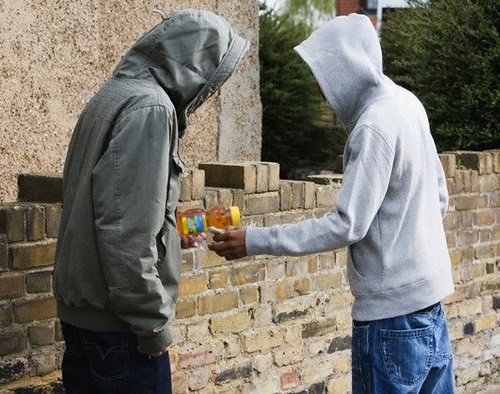
(Larken Rose is a speaker, author and activist, having advocated the principles of non-aggression, self-ownership and a stateless, voluntary society for over twenty years. Donations to help support his articles, videos and other projects can be made by PayPal to "[email protected]" or by Bitcoin to 13xVLRidonzTHeJCUPZDaFH6dar3UTx5js.)
We got a solar panel to run our well for under $150 from China. Pretty soon, the US decided that was unfair, and so put a ton of tariffs on Chinese solar products to make sure poor Americans can't afford them any more. I am sure they are protecting me from that Chinese sunshine, dangerous stuff...
That is interesting, at a time when more US bees are killed off by these new wonder pesticides.
Kind of don't give a shit, most commercial honey makers are greedy corporate pricks ......If our long dead relatives didn't make up so much nonsense and spread it everywhere we would be in sweet honey heaven.
Buying honey in a store is a huge problem. If people live a "natural" life and use/take what they need the bees can keep up. When governance of the land, food supply and agriculture in general left the hands of the men and women our sweet future was lost.
Every few hundred people should tend hives....(honey-chain, a decentralized food source ) and they get all the advantages of local made natural goodness. If we can get Asian honey cheaper there is a reason. With the decline of bees here in the states the supply and demand thing is there but we should overcome that and solve the mite problem....without the help of USDA DOA FDA or any three letter BS group. They brought us the Asian beetle and that worked just swell ppffffts!
It's a tough pill to swallow but you farmer fucks out there that are in on it....get off the programs and laydown the true claim to your land!
And raise bees of course!
No idea what that even means, start with "greedy". What do you mean by that? Are you referring to the desire to get a return that you arbitrarily deem too great on one's risk and labor? Throwing around undefined pejoratives is not the same thing as making an argument.
The argument is that there is no "free trade". Farmers including beekeepers are operating on a big business corporate level with il gotten gains......they lobby, they take the handouts/programs and they tend to do what they are told to do with their land. Greed isn't just wanting prosperity it's wanting it and getting it at somebody else's expense. Capitalism is great I'd just like to see it put in practiced for once.
Rotten was a terrible and hugely disappointing mini series. Every single episode (not just the honey) is spun like some weird crime investigation pro state propaganda. If the honey episode made you angry just wait for the fishing one at the end. If you watch that one I think your head might possibly explode lol.
Show should be named:
REGULATIONS
Has very little to do with proper food information and a lot to do with trying to tell you how the nanny state "protects" you....... from yourself...... or freedom..... scary.... scary.....freedom.
Generally speaking, I think most of the libertarian folk around here would classify me as a statist, but I don't see any of those tariffs and trade restrictions as a positive or a desirable thing. I'm not one of those utopian thinkers who believe the market could solve any problem you throw at it, but trade is right up its wheelhouse. If you are running a business that can't deal with competition, you're in the wrong businesses and it's not the job of the consumer to pay for you to stay in business, it's as simple as that. So I absolutely understand why you would be infuriated by this sentiment especially keeping in mind that it seems that the honey coming from China is not itself rotten anyway.
I am :) Although I wouldn't classify it as utopian.
Do you have any 'problems' or 'issues' on the top of your head that would maybe change my mind on the matter? What problem(s) can't the free market fix that government can?
Since "the market" is just a term for voluntary trade, to say that some things shouldn't be left up to "the market" is literally to say that some things should be solved by violent aggression (since the only thing that is NOT "the market" is coercion).
You neglect private corruption, which greatly impacts markets. This is the justification for regulation, after all.
What we need to prevent corruption isn't government, but tort. By enabling just courts to impose penalties on entities that harm folks with contaminated, unlawfully produced (slave labor, etc...), or via collusion that creates price-fixing via tort actions, the collusion that so marks government regulatory bodies would be replaced with a vigorous market for watchdogs profiting from finding criminals abusing markets.
Crime exists without government too. Government is just the best way to commit crimes.
What do you mean no government but having courts. Courts are a type of government. For them to work you need legislation, you need a procedure to put magistrates in office and you need to fund them. That's not no government. That is government by every definition I'm aware of.
And why do you imagine this could happen. Who would have the market incentive to buy that service to make it more profitable than the abuse it's supposed to fight? Could fighting abuse be more profitable than profiting from abuse in any free market scenario? Thinking that this could work seem like nothing more than wishful thinking. Of course, I would love to be proven wrong with an explanation of how this could ever work in practice. If there is a practical way to do it, so the free market could fight abuse by just being free, I'm sure the steem blockchain could easily be the first place to put that mechanism to practice. If you can point me to such mechanism, I would gladly start promoting it with all my energy.
To me those are kind of empty platitudes... Any data to back those assertions up?
I wouldn't really call this a fair point. We can't live in a society around other people and always do only and exactly as you would please. There are always times when you will be forced to do something you don't want or not do something you want because it would infringe on other people's rights. I do think that a free market also coerces you into doing many things like somehow making a living. Having to share a society with others in a practical way is not "violent aggression" in my book and doing so requires some organization.
And there are many situations when you should be forced to do things even in a free market. If you and I sign a contract and you keep your part of the bargain, but I decided to bail on mine, shouldn't I be somehow coerced into delivering my part of the deal or providing some form of reparation from the damages you've suffered. "Voluntary trade" itself does not have the means to deal with this problem and despite the fact that I've discussed this with numerous people, I have never heard a convincing argument how it could or would do so. I'm always open to hear new ones of course.
I think the distinction between coerciveness (government) and contractual obligation(s) (voluntary association) is pretty muddy in your view.
The distinct difference comes down to voluntarily agreed upon, or not.
In the case of government, nothing is voluntarily agreed upon. You either obey, or get locked in a cage.
On the other hand, you and I, in a free market, have the ability to do business together if we so choose. If you or I end up not holding up our end of the bargain (the contract we both agreed to), the 'force' used to make the other whole is not immoral or un-just, but a last resort to rectify potential fraud.
You would have a much better chance at success living in the woods and not making a living in a free market society than one with a ruling class. Just go try and live in the woods and build a home, hunt, collect water, etc, without any permits or paying any taxes. I'll send you my # on discord so you can use me as your one call from jail ;)
And if we have just the market, who would exert that force regardless of its morality. How would the market stop me from not holding up my end of the deal? Let's talk about practicality and realistic feasibility. If you say what you are proposing is not an utopia, than you probably believe it's feasible. Why? How? Those are the questions I don't see answers to and because of those questions I remain unconvinced.
If someone convinced you that communism with unlimited resources for everybody and unlimited freedom with everybody where everybody does exactly as they please voluntarily and where everybody is happy would be moral, would that make it feasible? No, it's still an utopia. You could say it would be moral by definition, but the fact that one has defined it as moral does not make it possible.
If you want to defend the point that the free market can provide everything, explain the mechanisms that would enable it to do so, not why it would be morally superior. I'm not saying it wouldn't be preferable if it were possible. I'm saying it can't work. Remember, you asked me what problems the market can't fix. That's a practical thing, not a thing about morality.
Would you really? In a 100% free society what would stop me from coming to the woods and killing you and taking everything you've built to myself? The market? How?
Before we go down the road of how will this and that work absent govt, let's both conclude that we own ourselves. Can we do that? Let's assume we can...
Imagine all the ways we handle these types of scenarios now, but instead of them being run by gov't funded through taxation, you get to decide what company you do business with should something like this ever happen to you.
For example, I want to sell a parcel of land, and you want to buy it. We agree on a price and agree on Tom's Mediation Services to settle any disputes should we have any. Tom's Mediation Services employs John's Security Outfit, which goes after people who reneg on contracts.
Should either of us default, these two companies would be in charge of settling the matter.
2 things would stop you from doing these things.
#1, similar to why (I assume) you're not one of those Steemians replying incessantly with follow4follow, or upvote me pls, or any spam comment in general, is because you have your reputation to uphold. You wouldn't be at a 56 if you did those things. Your rep here tells me that you have provided other Steemians with valuable content. Same goes in the real world, being a dick and an asshole doesn't get you very far...such as coming into my home and trying to kill me and take all my things. How many people would be willing to do business with you in the future?
#2 If I am going to give any credit to the "founding fathers", it's that they knew the people should be armed. With our current govt, or absent one, you must have some big cajones to assume that when you come onto MY property intending to kill me, that I won't pump your ass full of lead. Merry Christmas ya filthy animal.
Now, assuming you don't care about your rep and you have nothing to live for, with gov or not, that really doesn't make a difference then, does it?
Do some research on Dispute Resolution Organizations. Lots of good theories about how they would more effectively and efficiently protect us from everything from things like breach of contract and theft to assault and murder. The incentives for these relationships to work well would be strong in a free market scenario. These incentives are all but nonexistent in the current system. Best of all is that if the one you go with fails to live up to your expectations you could fire them and get a different DRO to represent your interests.
I have read about those ideas, but so far I have not been convinced that the incentives are actually there. If you can tell me something more specific, I might be swayed, but just like that all I can do is reject your assertion and share the fact that I'm currently convinced you are incorrect.
Well, that came out a little snarkier than it sounded in my head when I wrote it. I was hoping it will quickly and efficiently describe my position in a whimsical way. Now that I'm rereading it, it sounds a bit douchy. My apologies about that.
Now to the issue. It's not surprising that you wouldn't see it as utopian if you see it as the correct model to be striving towards. I personally think the free market has a lot of power and that's what an economy should be built on. But in my opinion there are many things that a free market does not have the means to handle efficiently, effectively or sometimes at all and that's why some level of social organization is the only practical or realistic way to handle them that I can think of. Not saying governments are perfect or inherently good or anything like that, but that they serve some crucial functions even while being flawed.
Let me give a few examples of issues the market can't handle in my opinion:
How would the free market provide those better than a mediocre corrupt government? I live in a country that isn't or wasn't doing well on many of those issues and I'd still prefer that imperfect government over no government at all because I'm convinced things would devolve even more without it.
Part of my thinking also includes this - if the free market (that we arguably have at least to an extent in many places around the world) could provide everything, why hasn't it done so already?
Again, if you oppose "the market" handling those things, then you necessarily advocate violent coercion and extortion of the state handling them. (And since "government" is always the biggest VIOLATOR of individual rights, #3 is kind of amazing.) Break it down to basics: which do you think would result in you getting better "service": an organization that YOU get to choose whether to hire or not, or an organization that FORCES you to buy its services. The former is "the market." The latter is "government." To expect the latter to do a better job is kind of ridiculous, even without all of the historical examples of how it doesn't. (By the way, regarding your first comment, using force against people who have committed fraud or aggression is DEFENSIVE force, which is inherently moral, and doesn't require "government" or any special "authority.")
Again, I obviously disagree with this assertion.
Let's imagine a free market for the services I've mentioned. If the service is contract enforcement, I will choose the service that would allow me to violate the contract that says I have to pay you for services and goods you've delivered to me. If the service is law enforcement, I will chose the service that would allow me to take your stuff without punishment. If it's safety, I would choose the service that would keep me safe even after I've killed you so you don't talk about the injustices you've suffered at my hands. I suspect those services would be pretty popular to the people who could afford them. If there is just the free market, what do you think could protect you from my abuse in that situation if you can't afford the services I'm using? Would you not be coerced into things you are unhappy with in that situation? Would you not be subjected to violence?
Where are the historical examples of markets doing all of that on their own?
First of all, morality is subjective, so the distinction you are offering has no practical merit I can see. And you did not answer the question I posed for you there. How would the market protect you in that situation. Who is going to exert that "defensive force" and how will you make sure that doesn't get abused and so on and so on. Tell me how you untangle that mess without letting in some authority or allowing for people to just use violence on each other until market equilibrium or something. This is why I call the idea that the market on its own can provide everything utopian - I don't think it has any real chance of working in practice. It's just like communism. It sounds appealing to some if it could work perfectly, but it never could. If you think it can work, please tell me how, not why you think it would be just if it could. Of course it would be preferable if it could work. If I thought it could work, I would support it too.
To your first comment, what would happen if you refused to pay for the government service? How is that result not coercive?
It is coercive, sure, and so is receiving punishment for a crime. If any form of coercion is unacceptable, so is punishing people for crimes.
Force when used in self-defense is not an immoral act. If by crime you mean that someone has been victimized by the criminal (aka the criminal initiated force) and by punishment you mean bringing some sort of justice to bear against the perpetrator, then it is acceptable to act with force against that person. It is the defense of another, a form of self defense, not the initiation of force against the criminal.
Now in the US and all other places in the world there are many laws against acts that have no identifiable victims. Punishing people for these "crimes" is indeed coercive and immoral. It is the initiation of force against someone. So is forcing someone to pay for such nonsense.
I guess instead of typing it all over again, I should just post this link here:
https://steemit.com/government/@larkenrose/can-we-trust-the-market
I read your post and while it's vaguely on-point, it in no way demonstrates or explains that what you are advocating is not utopian. You try to explain why you think it's moral. The question I asked you is why you think it's feasible in the way you describe it. And as you said, we did make it personal, I gave you some very specific examples and I haven't gotten a convincing answer yet.
Let me answer the questions paragraph of your post here:
Contracts, not infringing on other people's rights, rule of law, punishment for crimes and the taxes necessary to make that happen. Of course the word force is overly-emotional in this case.
In the cases when you want to spend it to illegally harm others. Like a business venture that would pollute everybody's water, you hiring an assassin to kill me, or knowingly buying a stolen item to name a few.
The above. Or fraudulent ones where you want to defraud other people.
In none.
You keep bringing up examples of things that harm people, and talk about using force to stop that. "Government" is NEVER limited to such defensive force. It ALWAYS uses immoral aggression, in the name of "taxation" and "legislation" and "regulation." When someone commits force or fraud, ANYONE has the right to do what it takes to stop that. It doesn't take politician scribbles ("laws") or special "authority" to make it justified. If you really meant your final answer to that final question, you are ALREADY a voluntaryist, and don't know it.
What is the difference between the government claiming to use defensive force and actually using excessive force and individuals or private organizations doing that under free market anarchy?
I keep bringing examples and you keep deciding on not addressing them.
And what happens? Everybody would agree on what was right and wrong? Rightful violence between people until market equilibrium? I keep asking how do you solve that practically and you keep telling me that ANYONE has the right to solve that problem. I find zero practicality in your answer. That's why I remain convinced that your position is utopian. I don't find it immoral, I find it *unfeasible.
The difference--the ONLY difference--THE difference--that makes ALL the difference ... is that "government" is imagined to have rights that you and I do NOT. It is imagined to have the moral right to INITIATE VIOLENCE in situations where normal people have no such right. In short, the belief in "government" and political "authority" is the belief that some people should be ALLOWED to do what would be universally recognized as IMMORAL if anyone else did it.
Now try to explain to me how any of the scenarios you brought up would be improved by giving some people societal permission to use immoral violence.
"What is the difference between the government claiming to use defensive force and actually using excessive force and individuals or private organizations doing that under free market anarchy?"
The difference is that the concepts of government and authority try to justify these acts of aggression by calling them "law".
Is there not one solution you can think of, of how this could work without government?
rocking-dave, problems will always exist in any society. It doesn't mean we should force others to solve them for us. If you believe in the concept of government and authority, you believe politicians have the right to coerce others using threats of force if they don't comply with the politicians' laws.
None of this is what I'm saying.
When did I say a society without problems is possible? What I'm saying is that even mediocre democratic government provides more solutions to problems than anarchy.
I love it when somebody else tells me what I believe ;) But nope.
I understand why people find voluntarism morally desirable. What I don't understand is why they think it's feasible or why would you expect to have more real freedom under that than under contemporary democracy. I mentioned at least crucial benefits that having some form of organization allows. I keep asking how those would emerge from a free market, but my questions keep falling on deaf ears.
Instead I get explanations how one of its basic principles is supposedly moral. That by no means demonstrates that the idea is not utopian. To show that something is not utopian you need to somehow demonstrate or at least hint at a mechanism that could make it happen well in practice. That's the piece of the puzzle that has me unconvinced.
This is patently false: "even mediocre democratic government provides more solutions to problems than anarchy." Democratic governments--in fact, democratically-elected constitutional republics--commit more oppression, robbery and murder than any other institution in the history of the world. Right NOW you are robbed far more by the state than by anyone else. You have been taught to believe that "government" keeps people civilized, but that is absolutely 100% bullshit. The ONLY thing the belief in "authority" adds to society is more IMMORAL violence, and the legitimization of that violence.
I think it's not illegal to sell honey, Here everywhere people can sell it.
It's my first day on steemit please checkout my introduction.
My Introduction - Travelling Queen narisatravel Please support my first day on steemit
Larken is talking about tariffs, Narisa. Not paying tariffs on imported products can result in criminal prosecution in the US.
(I followed you and upvoted your intro, welcome!)
Ohh ALright i got it, Thanks for your kind response please stay connected for my traveling posts :)
But, Larken, if the State does not steal -- sorry, I mean impose tariffs -- on honey brought across imaginary invisible lines then who will build the roads?
I watched about half of the first episode and turned it off for all of the reasons you mentioned.
Here I was expecting a real documentary on strange things happening with the honey supply and found myself watching statist garbage trying to claim that finding ways around being extorted is some kind of criminal act.
Instead of getting honey for lower prices we get higher prices AND we get to pay for massive amounts of extra government employees to protect us from saving money and/or having more choices.
whew... what would we do without these guys???
Loved the graphics by the way, especially the black market honey dealer.
Buyer beware...of the state.
Yup.
The entry of a foreign competitor means a low price, the competition will intensify and the first seller will be forced to lower its price